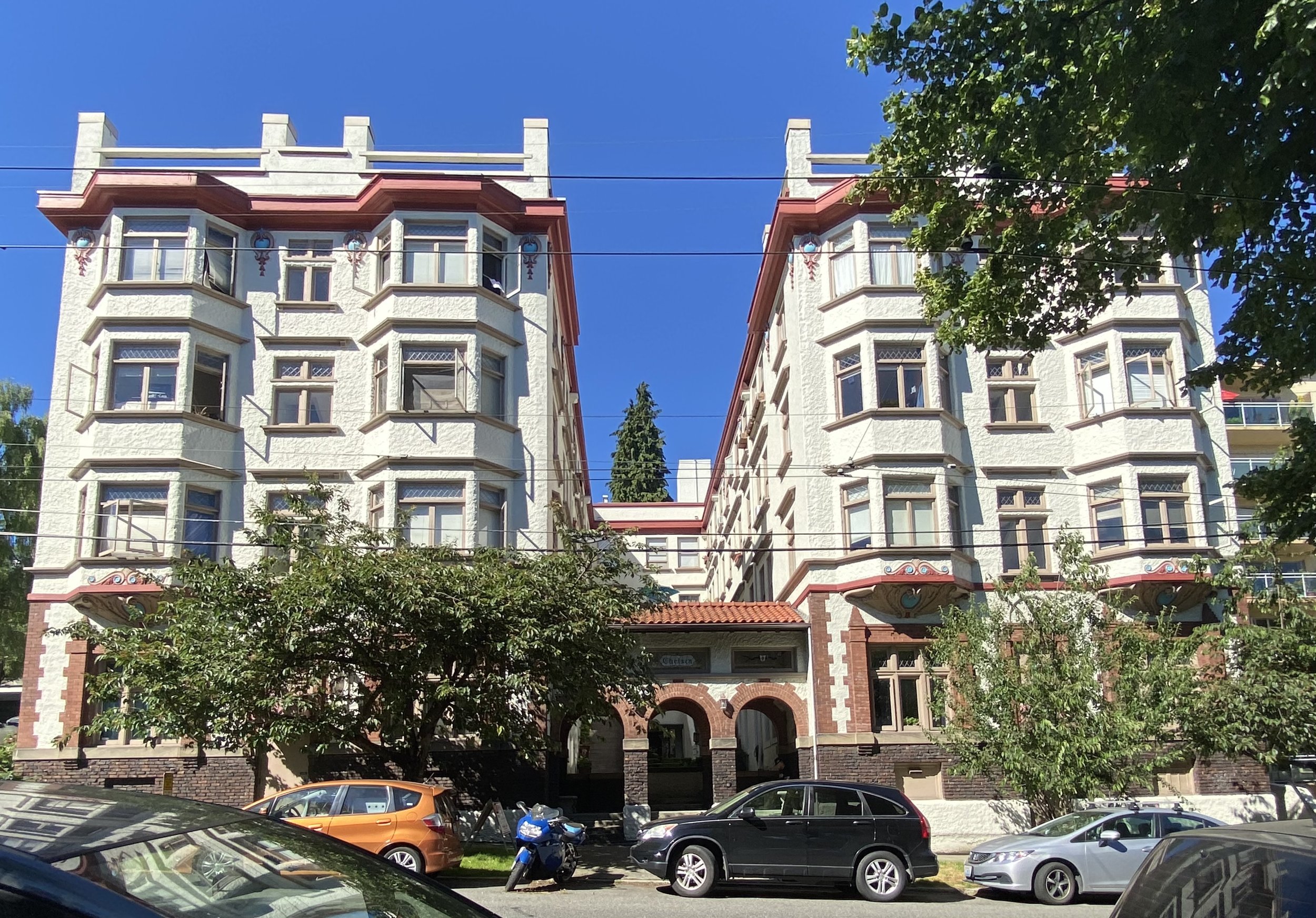Queen Anne buildings listed on the National Register of Historic Places
Chelsea Family Hotel (The Chelsea Apartments)
National Register of Historic Place 1978 (Built in 1907)
Photo by QAHS, 2022
The Queen Anne Historical Society’s work in preservation planning focuses largely on buildings and places designated as city of Seattle landmarks. This is because Seattle’s preservation ordinance gives the Landmarks Preservation Board the power to prevent unsympathetic alterations to historic buildings and in most cases avert their demolition. The National Register of Historic Places is a national list of the most historically and architecturally important buildings in the country. It offers great prestige to the caretakers of such buildings but has extremely limited power to protect them. *
Below are Queen Anne’s places on the National Register with the dates of their listing. Many of them are engineering feats connecting Queen Anne to other parts of the city. The places in bold are also designated City of Seattle landmarks.
Aurora Ave Bridge (1982), Aurora Ave N / Raye Street
Ballard Bridge (1982), 15th Ave W/ W Emerson Street
Ballard-Howe House (1979), 22 W Highland Drive
Century 21 – Washington State Coliseum (2018), 305 Harrison Street
Chelsea Family Hotel (1978), 620 W Olympic Place
De La Mar Apartments (1980), 115 W Olympic Place
Fremont Bridge (1978), 4th Ave N/ Florentia Street
Lake Washington Ship Canal (1978), Fremont Bridge to Ballard Bridge
Matzen House (2019) 320, W Kinnear Place
Men’s Hall (Alexander Hall) – SPU (1970), 315 W Bertona Street
North QA Drive Bridge (1981), Queen Anne Drive spanning Wolf Creek Ravine Queen Anne Drive spanning Wolf Creek Ravine
Queen Anne Club (1983), 1530 Queen Anne Ave N
Queen Anne Post Office and Regional Headquarters (2011), 415 1st Ave N
Queen Anne Public School (1975), 515 W Galer Street
Queen Anne High School (1985), 215 Galer Street
Seattle Carnegie Library – QA Branch (1982), 400 W Garfield Street
Stimson-Griffiths House (1977), 405 W Highland Drive
Stuart House and Gardens (1983), 619 W Comstock Street
Wagner Houseboat (1982), 2770 Westlake Ave N, #10
Wilke Farmhouse (1974), 1920 2nd Ave N
* Environmental Impact Statements for federally funded projects, especially highways, must assess the impact on National Register properties. Federally owned buildings sold to local governments must be evaluated for historic value and potential National Register listing.

